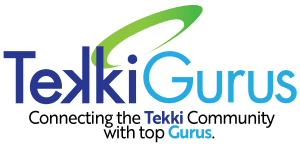What is the Value of Community?
One of the essential annual activities of running any kind of user group is to check in with your members on what is working, what is not working, and what changes need to take place. Metrics are limited as a measurement. You can track attendance, of course, and maybe you’ll dig a little bit deeper by segmenting feedback based on topic, speaker, or event type (session, networking, lunch versus dinner, etc), but even then, the metrics may not tell you what was “successful” as the results couple be very subjective. A popular topic or speaker might bring in more people, but a bleeding-edge technology might be exactly what a sub-set of your members wants to see and hear.

Photo by William White on Unsplash
While the creation of communities around specific technologies or industries is nothing new, we live in an era of rapidly expanding collaboration and social networking solutions, which opens up new possibilities for the development of community. In fact, social is quickly becoming the primary method through which we connect our many disparate systems, tools, and processes. I don’t think I’m overstating things when I say that the role of social collaboration is becoming more and more prevalent, expanding our ability to create and connect to various community efforts on the fly. Compared to even 20 years ago where I was attending or organizing face-to-face networking sessions in the San Francisco Bay Area to help my startup connect with investors and prospective employees alike, I can now “plug in” to various online social communities and connect with people anywhere in the world. To be fair, we talked about doing this kind of stuff 10 years ago, but today it just feels natural — it’s how we connect.
As quickly as communities come to life — whether online or offline — the rules on how to make them successful remain largely unchanged: they require leadership to take action, they need people with passion to keep things moving forward, and while there should be guidelines for operation (rules of engagement, or a simple method for solving conflicts) the most successful communities are grown and managed organically. The community itself manages the community. Command-and-control just doesn’t work. Of course, that model may not work for most enterprises. A community created in support of your products or services, while maintaining some level of independence, will need some degree of visibility and administration.
A key question every enterprise must ask: How do we measure the value of the communities we create? Just as I pointed out at the start of this post, the default measurements for participation will likely not tell you what you want to know about the success of your community efforts, certainly not your purely virtual communities. There are many directions you can go in capturing metrics – the question is: what is right for your company and your community?
There is no shortage of tools and analytics platforms available to track and measure the performance of communities – the hard part is then translating that data into value. My approach is a bit different, and requires a more firm understanding of your overall community strategy, breaking down the value of community into three core areas:
- Personal Value.
This may seem out of place, but one of your first “measurements” should be to confirm whether or not you’re receiving any personal value out of your community efforts. If you are not – and many people just don’t feel comfortable with the community model, which is fine – your lack of connection could be skewing the results (or your perception of the results) of other value or success measurements. Ask yourself whether you are learning anything. Does it inspire you? Do you enjoy the relationships you have with other members? Just remember that not every interaction will bring an immediate benefit back to you individually, but your participation m,ay benefit others. Value provided is equally important as value received within a community construct. - Business Value.
Here’s the gist of what most organizations want to measure: how many connections were made, how many business transactions were completed, how many partnerships identified? Value to the business tends to be tied to number of leads, number of opportunities, number of contacts made, number of proposals sent. The most quantitative of the three areas, business value also has the clearest connection to your overall strategy. - Community Value.
I know this sounds redundant, but its not. Just as its important to understand your personal value, this one is about understanding and measuring the value to members within a community (the little ‘c’ community aspect of the big ‘C’ Community). What are other people learning, how are their businesses benefitting, what kind of financial value are they realizing by participating?
Some companies are better than others at tracking their community activities, such as through their CRM platforms where every customer interaction is tracked as a separate activity, or by tracking activity on every box, button, and text box on a community site to better understand where people are spending their time, and how they are interacting with others. Organizations need to improve their ability to mine this data, looking for trends, better interpreting and taking action on customer feedback. Organizations need to be able to quantify the value of their activities, but just remember that community is by and large as a qualitative activity — a way of reaching out to customers and partners to improve relationships, and to build trust. If you approach your measurements with a firm understanding of your overall community strategy, you’re more likely to see the value within and track its movement.




